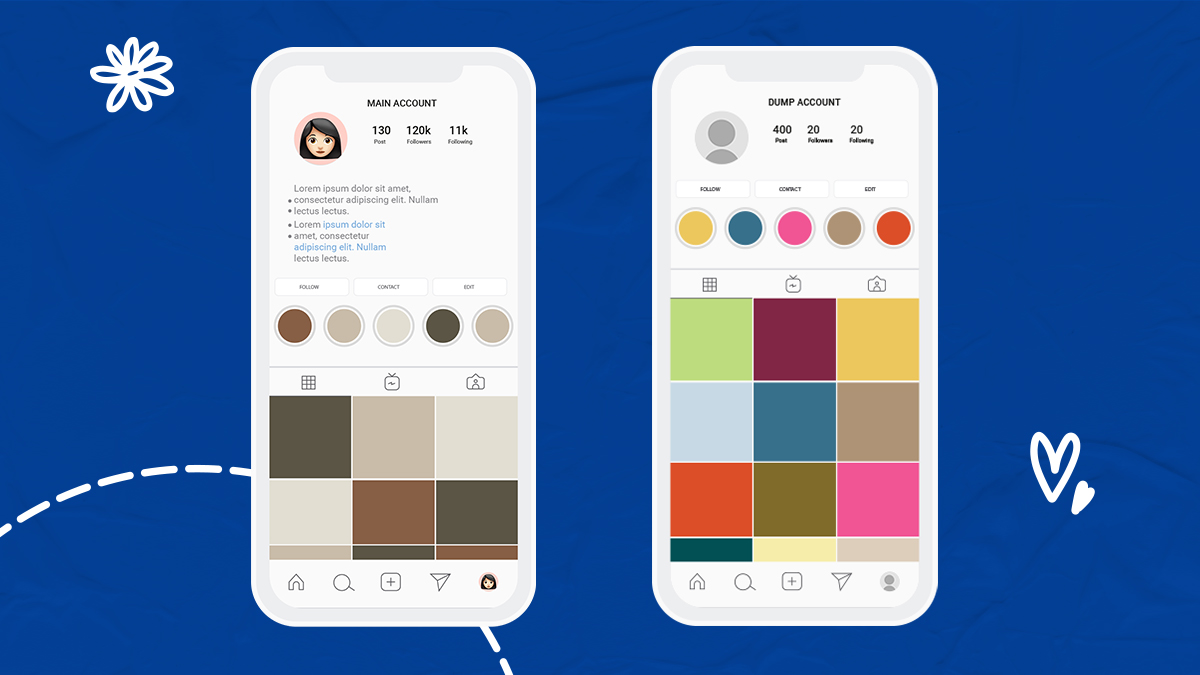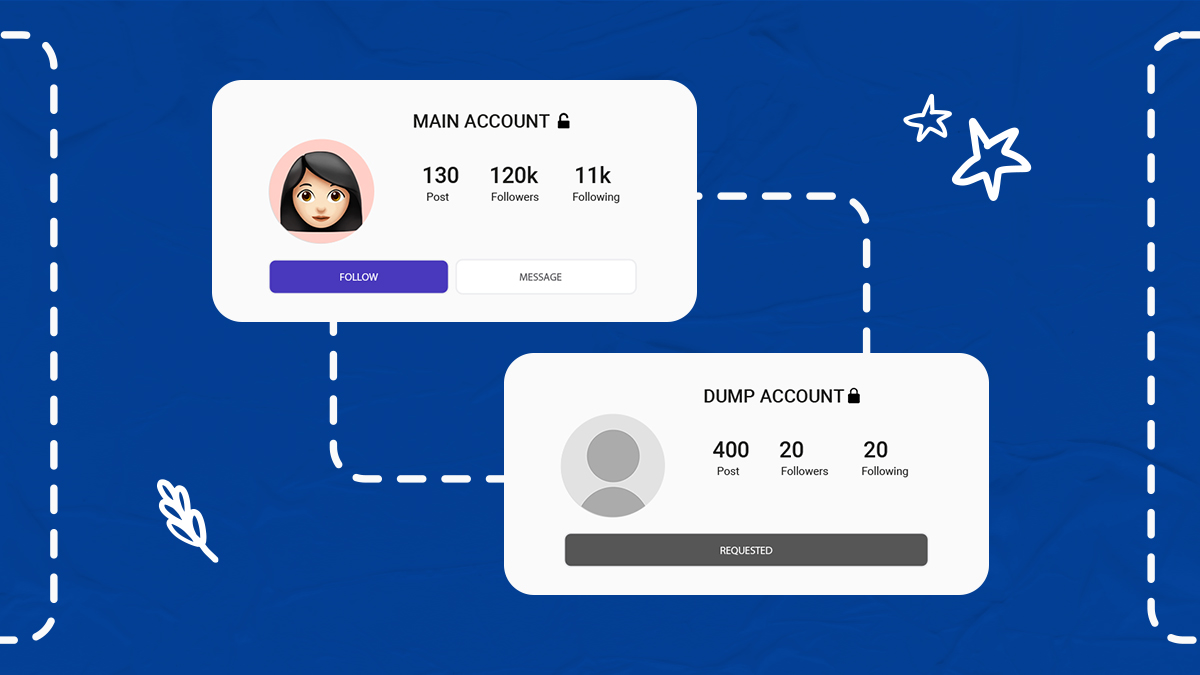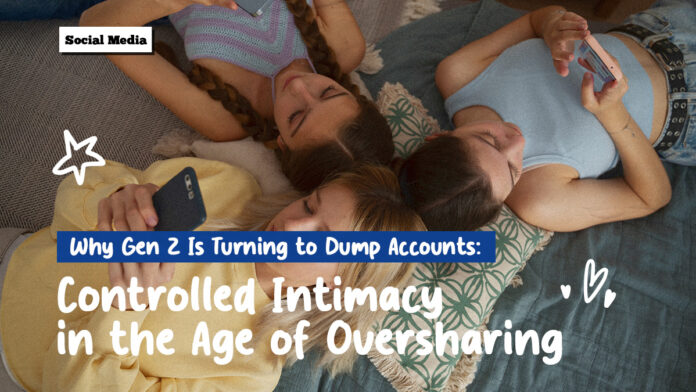A profile with no bio. No curated grid. No polished selfies. Just a scattered feed of random uploads: worn-out sneakers beside a half-finished coffee, a grainy meme, a Notes app screenshot mid-overthink. Then a long, all-caps, emotionally charged caption under a pixelated photo of a congressional session on TV, dragging a politician for being “illogical and stupid despite that fat paycheck and fancy title.”
It’s a dump account—an intentionally messy, semi-private space for the things that don’t “fit the feed.” For Gen Z, these accounts are digital breathing rooms in a world wired for aesthetics, algorithms, and applause.
The Case for Dump Accounts

At their best, dump accounts are acts of digital resistance. A way to reclaim control in an era of constant visibility. While main accounts often serve as personal brands, feeding into aesthetic pressure and social metrics, dump accounts are refreshingly human. They’re where someone can post three unrelated photos, a blurry mirror selfie, and an emotional caption—without needing it to “make sense.”
Sociologists Alice Marwick and Danah Boyd call this context collapse: the merging of all our audiences into one digital space. On platforms like Instagram or Facebook, you’re simultaneously addressing your parents, classmates, boss, and romantic interests. This forces self-censorship and fuels digital anxiety.
Dump accounts offer a workaround. Instead of tailoring content to a mixed audience, users control who sees it. By limiting visibility to a trusted few, Gen Z reintroduces contextual boundaries, restoring micro-communities where authenticity can thrive without fear of misinterpretation.
It’s also about controlled intimacy. Adding someone to your dump account is like handing them a spare key to your inner world, minus the pressure to perform. These accounts become modern confessional booths, friendship diaries, or emotional group chats with an Instagram interface.
And beneath it all is something more profound: freedom in secrecy. Not secrecy to hide something wrong, but to protect something real. Vulnerability, here, doesn’t need packaging. In a world where everything feels like content, secrecy becomes a space not just to be seen, but to be understood.
Privacy Illusions, Echo Chambers, and Digital Exhaustion

Still, dump accounts aren’t without contradictions. While they offer refuge, they also reinforce a kind of double life. Gen Z may be rejecting polished content, but they’re still performing, just in a different tone. “Here’s my chaotic side” is still a brand, especially when followed by affirming comments like “sameee” or “(2).”
There’s also the illusion of privacy. Dump accounts feel safer, but screenshots, leaks, and accidental exposure are always risks. The intimacy feels real, but it’s still happening on platforms designed to harvest attention and data.
Selective audience control can also lead to ideological insulation. When users handpick who sees their unfiltered thoughts, it fosters intimacy, but also echo chambers. Rants and emotional bursts often receive agreement, not challenge. While validating, this can distort reality and reinforce tribalism.
In extreme cases, it may breed us-vs-them thinking, where outsiders—family, boomers, political opponents—are dismissed as irrelevant. The primary account polishes the persona; the dump account may quietly entrench division under the guise of authenticity.
The Rejection of the Algorithmic Self

At the heart of it all is Gen Z’s exhaustion with algorithmic identity, constantly shaping the self to fit what performs well. After growing up in digital spaces dominated by likes, views, and virality, many young people are craving the opposite.
Dump accounts also reflect parasocial fatigue: burnout from being both the observer and the observed. Watching others live their best lives while managing your own digital presence is emotionally draining. Dump accounts offer a way to participate in digital culture without being consumed by it.
They’re not just rebellion. They’re refuge. And maybe more importantly, they’re quiet declarations of freedom.
A Digital Middle Ground

Through dump accounts and private circles, Gen Z proves that authenticity and privacy are still possible online, just not in the places we were told to look. These spaces feel like resistance: against algorithms, overexposure, and the pressure to perform.
But how free is this freedom, really? These comforting corners of the internet still live on platforms engineered for surveillance and profit. The blurry fries, the vulnerable rants, the cryptic Spotify lyrics may feel radically honest, but they’re still content. Still data points in someone else’s system.
Maybe there’s something powerful in posting just because you felt like it. No branding. No filters. Just digital honesty in a world that may have forgotten what that looks like.
Words by Aljhelyn Piador
Also published in GADGETS MAGAZINE Volume 26 No. 1 Issue.
